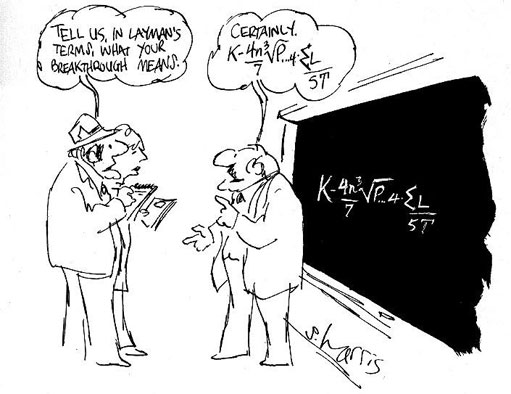3.5 Does the answer make sense in the real world?
Having completed a calculation it is important to check whether your answer makes sense. British money for example can only be issued to the nearest penny. If you share a bill for £20 among three people, your calculator would give an answer of £6.666 666 667. So how much should be paid by each person?
You would probably round up to £6.67 or £6.70 and put the extra pence in a charity tin.
It is important, when performing a calculation, to consider the context of the problem you are solving. The final answers should take the context of the problem into account. This means using appropriate rounding in order to give sensible answers.
Suppose you were intending to buy sand to make a foundation for a path of slabs and the sand came in pre-packaged bags of 20 kg. If your calculations showed that, theoretically, you need 69 kg of sand, you would still have to buy four bags of sand, since three bags would be insufficient.
You might be able to break a biscuit into halves, but it is difficult to give six children 4.833 3333 biscuits each. Similarly, an answer which suggests you can afford to take 10.134 people on an outing is not very sensible.
When you get a mathematical answer, you need to interpret the answer within the context of the original problem and round your answer appropriately for the situation. So if you could afford to take 10.134 people on the trip, you would probably interpret this as ten people. As for 4.833 3333 biscuits, you would need to round down rather than up otherwise there would not be enough biscuits: four or four and a half might be all right, depending upon whether you could break them in half easily.
Example 13
Interpret the answers to the following sensibly.
(a) Five people share a total bill for a night out of £56.66. They perform the calculation 56.66 ÷ 5 = 11.332.
(b) A children's charity has raised £1546.60 to pay for deprived children to go on holiday. Twelve children are selected to go. The calculation 1546.60 ÷ 12 = 128.883 3333 is performed to see how much is available for each child.
Answer
(a) To make sure that the bill is covered, the 11.332 needs to be rounded up so that each person pays £11.34. (The extra 4p collected could be added to the tip.)
(b) This needs to be rounded down in order not to exceed the budget (unless further funds are available), and so something like £125 each (plus a contingency fund of £46.60) might be suitable.
The decision to make when giving a rounded answer to a problem is difficult to quantify and is often dependent upon previous knowledge or experience. Despite this difficulty it is always necessary to be conscious of the context of the problem you are solving and to give appropriate answers.

